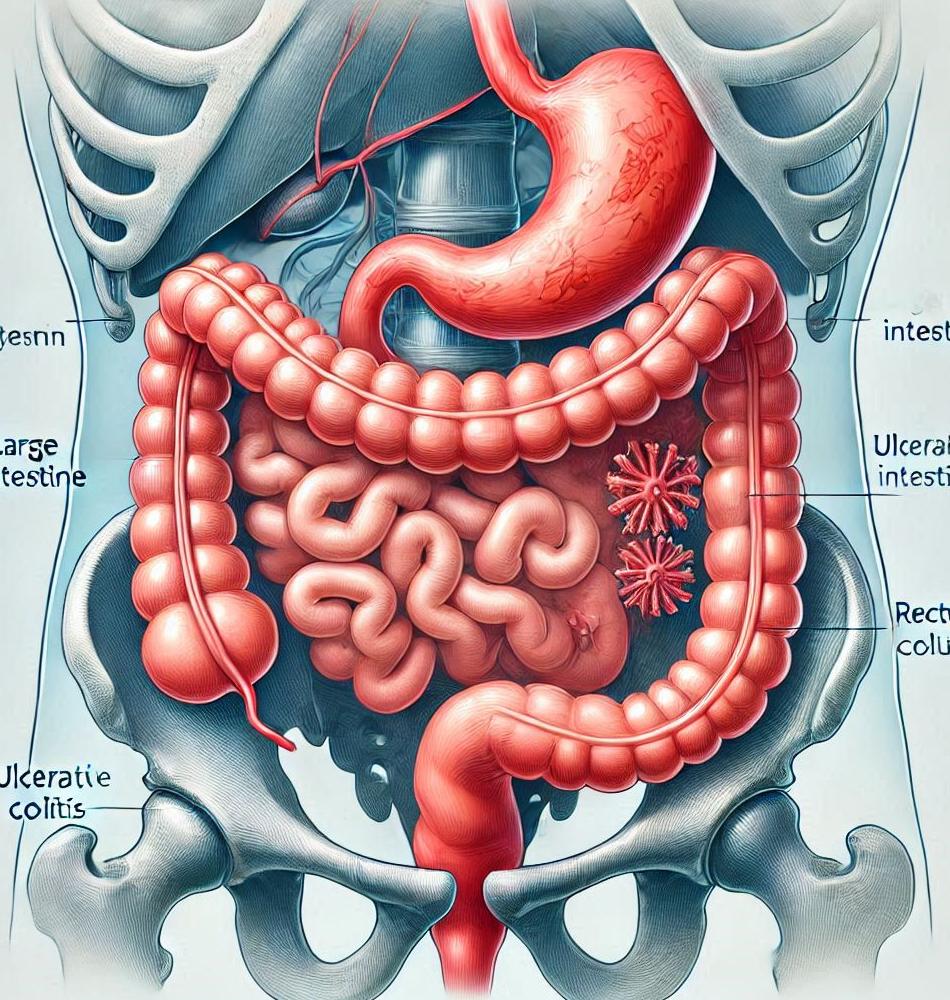Discover the intricacies of ulcerative colitis, its causes, symptoms, treatment options, and how to manage this chronic condition effectively.
Introduction 🌍
Ulcerative colitis is a chronic inflammatory bowel disease that specifically targets the colon and rectum, causing distressing symptoms and complications. This condition is often misunderstood, but understanding its intricacies can empower those affected and educate those around them. What exactly does having ulcerative colitis mean? Let us embark on this enlightening journey to explore the core elements of this condition.
What Causes Ulcerative Colitis? 🔬
Ulcerative colitis is a result of a combination of factors, and while the exact cause remains elusive, several key elements are believed to contribute to the development of this condition.
Genetic Predisposition 🧬
Research indicates that individuals with a family history of ulcerative colitis may be at a higher risk. Genetics can make one more susceptible to this condition, highlighting the importance of understanding one’s family medical history.
Environmental Factors 🌿
Certain environmental factors may play a role in triggering ulcerative colitis in susceptible individuals. Some of these factors include:
- Smoking and its cessation- Diet and nutrition- Stress and psychological well-being- Microbial imbalances in the gutImmune Response ⚔️
Another theory suggests that an abnormal immune response may lead to excessive inflammation in the colon. This could be a reaction to bacteria or other factors in the gut that the immune system mistakenly identifies as harmful.
Recognizing the Symptoms of Ulcerative Colitis ⚠️
Living with ulcerative colitis means dealing with a host of symptoms that can significantly impact one’s life. It is essential to be aware of these signs to seek timely treatment. Common symptoms include:
Gastrointestinal Symptoms 🙁
- Diarrhea, often accompanied by blood or pus- Abdominal pain and cramping- Urgency to have a bowel movementSystemic Symptoms 🤒
- Fatigue and weakness- Fever and night sweats- Weight loss and reduced appetiteEmotional Impact 😔
Individuals with ulcerative colitis may experience emotional and psychological challenges due to the chronic nature of the disease. Stress, anxiety, and depression can occur alongside physical symptoms, emphasizing the need for comprehensive care.
Diagnosis and Treatment Options 🩺
Receiving an accurate diagnosis is crucial in managing ulcerative colitis effectively. The diagnosis process often involves several steps.
Diagnostic Process 🔍
- **Medical History Review**: The physician will take an extensive medical history and discuss symptoms.- **Physical Examination**: A thorough examination of the abdomen can reveal potential issues.- **Diagnostic Tests**: These may include: - Colonoscopy to visualize the bowel - Blood tests to assess anemia or inflammation - Stool tests to check for infections or other abnormalitiesTreatment Approaches 💊
While there is currently no cure for ulcerative colitis, various treatment options can help manage symptoms and maintain remission:
- **Medications**: These can include anti-inflammatory drugs, immune suppressants, and biologics.- **Dietary Changes**: Adopting a balanced diet tailored to individual needs can alleviate symptoms.- **Lifestyle Adjustments**: Stress management techniques such as mindfulness and therapy can be beneficial.- **Surgery**: In severe cases, surgical removal of the colon may be necessary. This procedure can cure ulcerative colitis, but it has its own risks and considerations.Living with Ulcerative Colitis 🎢
Managing ulcerative colitis is an ongoing journey filled with highs and lows. However, with the right strategies and support, individuals can live fulfilling lives despite the condition.
Support Systems 🤝
- **Support Groups**: Connecting with others who face similar challenges can provide emotional support.- **Counseling**: Professional help can assist in coping with the emotional aspects of chronic illness.- **Family and Friends**: Open communication with loved ones fosters understanding and support.Nutrition and Diet 🍽️
Diet plays an essential role in managing ulcerative colitis. Here are a few dietary recommendations:
- Incorporate low-fiber foods during flare-ups to reduce bowel frequency.- Stay hydrated to prevent dehydration from diarrhea.- Keep a food diary to identify potential trigger foods.Frequently Asked Questions ❓
- What is the difference between ulcerative colitis and Crohn's disease?- Can ulcerative colitis lead to colon cancer?- Are there specific diets that can help manage symptoms?- Is it possible to achieve remission?- How often should I see a doctor if I have ulcerative colitis?Conclusion 🎉
Ulcerative colitis is a complex and often challenging condition, but by understanding its causes, symptoms, and treatment options, patients can take proactive steps toward management. It is vital to foster a supportive environment and incorporate healthy lifestyle choices to navigate the ups and downs associated with ulcerative colitis journey. As medical research continues to evolve, there is hope for more effective treatments and even a cure in the future.


